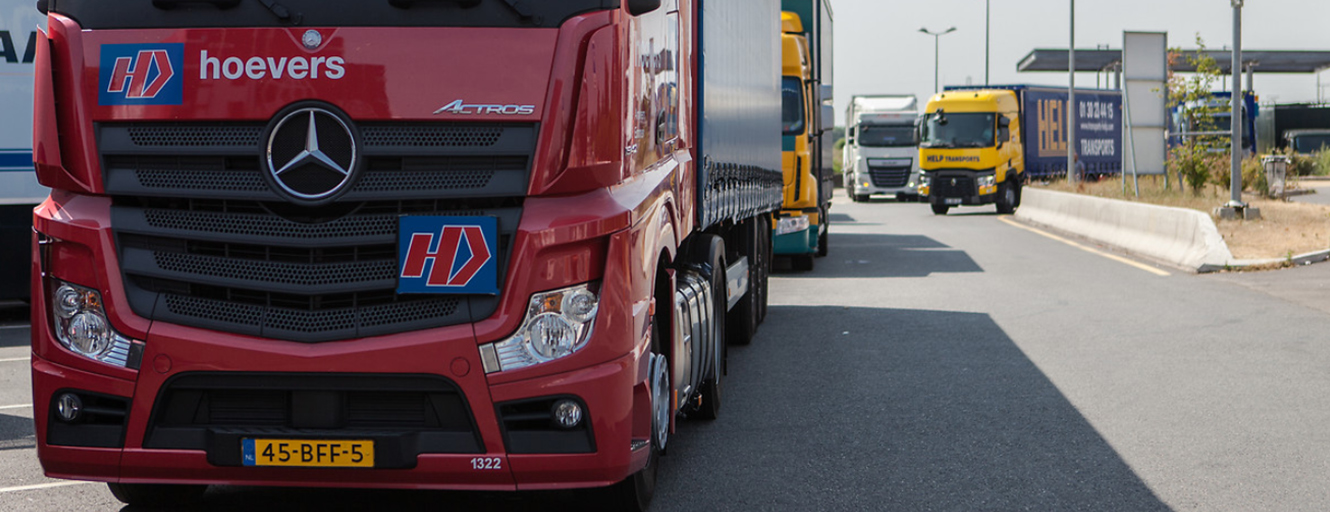Recruitment, vehicles and costs management: what are European fleet managers' priorities?
The Edenred white paper analyses changes in European road transport and the challenges facing the sector.
Edenred, a specialist in payment solutions for the working world and a leading player in fleet and mobility solutions, has published a white paper on the European road transport sector.
The Edenred white paper is the product of a series of conversations with fleet managers, representing transporters of all sizes operating in Europe’s main markets, and analyses the challenges confronting the industry. It also discusses the opportunities the sector can grasp with the advent of new on-board vehicle technologies and innovative solutions for businesses and drivers.
A fast-changing European road transport market
Notwithstanding the slowdown in the European economy since 2009, the European road transport market has achieved a brisk pace of growth between 2010 and 2019. Today it is worth €350 billion.
From a geographical standpoint, central and eastern Europe has become a crucial region of the continent for road transport operators through major investments and the competitive level of costs there. For example, Poland now ranks number one in Europe’s road transport industry, after overtaking Germany recently.
From a technological standpoint, the development of e-commerce and advances in fleet management have provided a boost to the sector’s efficiency and growth through a reduction in fleet managers’ expenses and improvements to vehicles’ loading capacity. The shift towards more environmentally friendly approaches is also driving far-reaching change in the sector, and how things will work in the future is not yet clear.
From a regulatory standpoint, the new “mobility packages” currently being adopted are expected to notably introduce greater protection for employees by gradually reducing costs and disparities in working conditions between different countries. It should also bring about fairer competition through, for example, tighter controls on cabotage and reinforced inspection capabilities.
The main challenges facing European carriers
In addition to the disruptive innovations in the shape of connected, electric and even self-driving vehicles currently looming large, the primary concerns across Europe of fleet managers – most of which represents small- and medium-sized enterprises – still relate to their day-to-day operations.
- Hiring and retaining qualified drivers
The shortage of drivers in the European market represents the most pressing issue, according to the fleet managers surveyed by Edenred.
Around 100,000 additional drivers are needed in Europe to meet businesses’ requirements, according to estimates.
Hiring and retaining qualified drivers is a major issue from fleet managers’ perspective. An efficient driver can deliver savings on fuel costs of around 10% to 20% compared with a less efficient driver on an equivalent journey.
To overcome this challenge, carriers use alternative recruitment channels and emphasise the importance of offering a competitive pay package that also incorporates employee benefitand incentive programmes.
- Managing and maintaining the fleet
Fleet management and servicing requires substantial investment in people and in equipment. Achieving the right balance between buying – the cost of which is rising steadily – leasing and/or investing more in maintenance to keep older vehicles on the road for longer is the second challenge mentioned by the transport professionals surveyed by Edenred.
The take-off in the long-term leasing market, which already accounts for some 70% of new vehicle registrations in Europe, could provide a practical solution to this conundrum and appears to be gaining some traction.
Vehicle maintenance is also a key variable, especially in countries such as Romania where vehicles are on average 15 as opposed to 7.6 years old in France. Predictive maintenance using on-board data from vehicles to keep faults and breakdowns at bay by making the necessary repairs in advance can deliver substantial savings.
Alternative fuel sources such as liquefied natural gas (LNG) and electricity are also seen as potential game-changers, although the technology currently has its limitations.
- Administering complex operating costs
Fleet managers have to contend with a number of cost drivers that vary according to the fleet size, the level of driver’s pay, taxes and journey length. On average, driver salary is the number one expense item (30%-34% of the total journey cost), followed by fuel (25%-30%), vehicle management and servicing (20%) and toll expenses (8% to 12%).
Carriers can cut their costs in various ways:
- Fuel cards and electronic toll devices can be used to secure lower prices and make drivers’ workday easier.
- The tax recovery service (VAT and tax on petroleum products) enhances carriers profitability.
- Telematics solutions, which are already found in 37% of vehicles in the European fleet, provide an effective means of keeping costs down.
With European carriers’ vehicles travelling empty for 25% of journeys, maximising loads is also a top priority, and the new breed of digital companies have set about addressing it, complementing the solutions provided by traditional freight forwarders.
- Having access to secure parking areas
Lastly, the paucity of secure parking areas remains an issue for fleet managers in certain regions of Europe. Parking options may be few and far between, whereas the influx of Eastern Europe carriers has driven up the number of vehicles on the road. In 2019, there were just 57 certified secure parking areas, around 500 secure parking areas and around 5,000 non-secure parking areas. What’s more, these areas are not spread evenly across the European transportation network.
Online platforms and mobile apps have been developed to streamline the parking place booking and payment processes for rest areas. These can cut out the need for carriers to carry out time-consuming searches, boosting their efficiency and reducing drivers’ stress. Service areas have transformed the amenities they offer, which now encompass a variety of services, such as accommodation, showers, restaurants, stores, cinemas and gyms.
Edenred, a specialised provider of fleet and mobility solutions for European road transporters
Edenred has in-depth knowledge and tremendous experience in the European road transport market through its UTA subsidiary, the number two distributor of fleet and mobility solutions across Europe, and through its local brands such as La Compagnie des Cartes Carburant in France and The Right Fuelcard Company in the United Kingdom.
Antoine Dumurgier, Chief Operating Officer of Edenred Fleet & Mobility Solutions commented: “The Edenred white paper brings into relief the deep-rooted changes underway in European road transport. It sheds light on challenges facing the sector and also reveals the latest trends, including the advent of new on-board technologies in vehicles, which could prove to be growth and performance drivers for carriers. As the everyday companion for fleet managers, Edenred provides crucial support to industry professionals, helping them seize these growth opportunities while making technology-based solutions available so they are better able to meet today’s key challenges – hiring and retaining qualified drivers and also managing and servicing vehicle fleets.”
Edenred offers its clients payment and management solutions covering expenses arising from vehicle fleet (such as fuel, toll, maintenance, telematics and financial services) and corporate expense solutions for expenses incurred by employees in the course of their activities.



